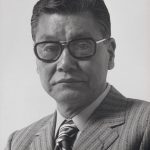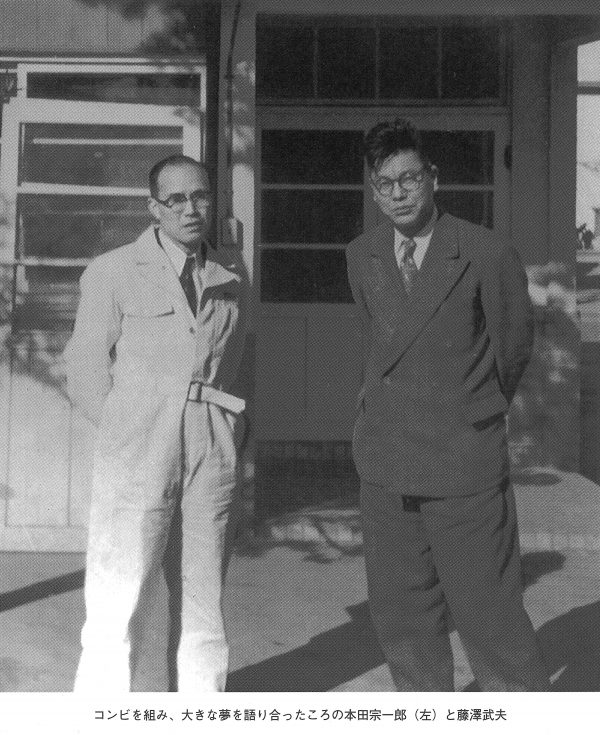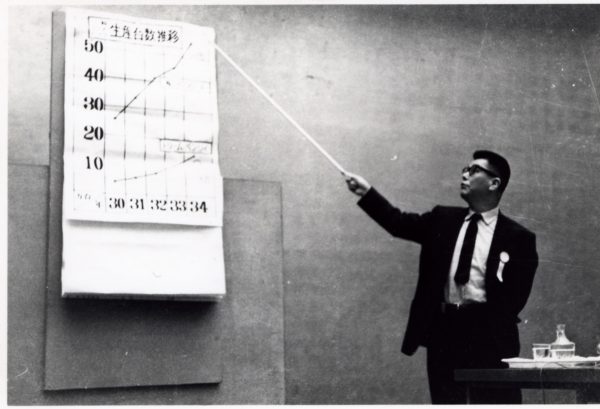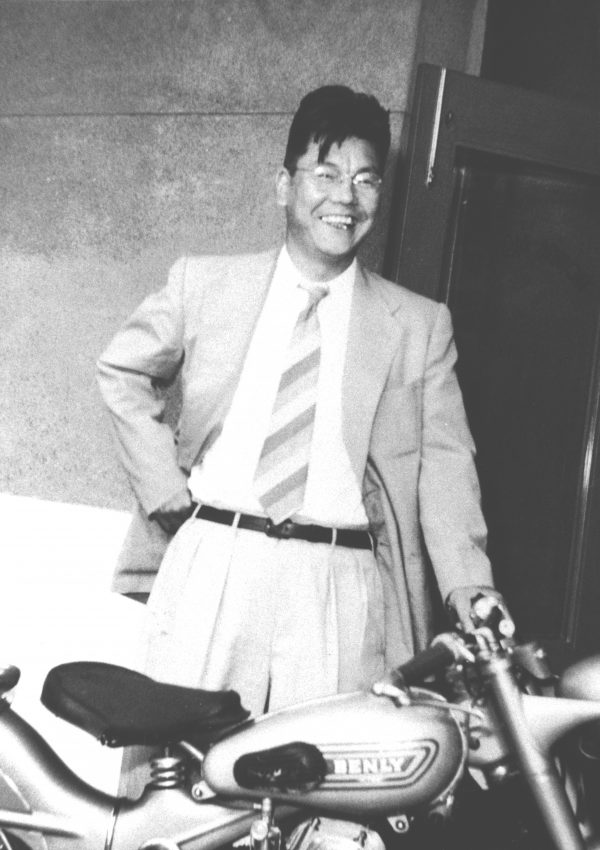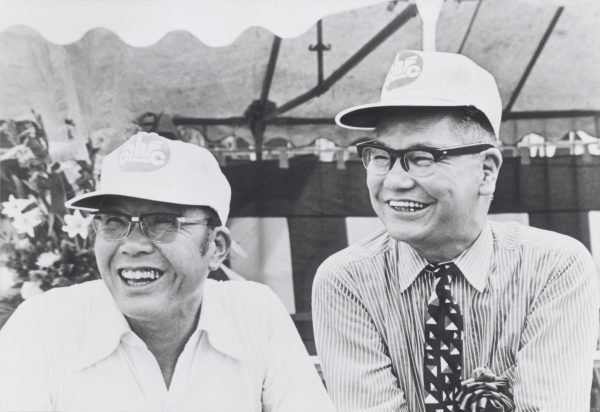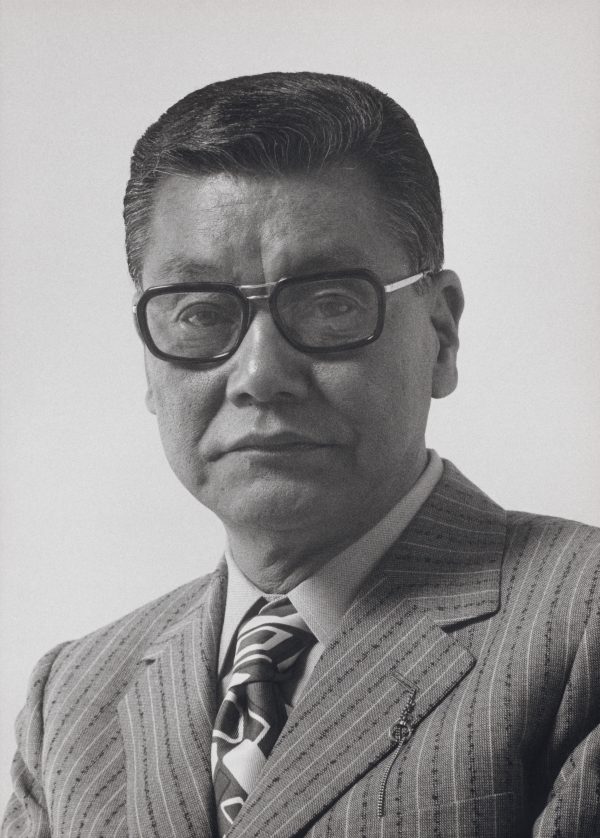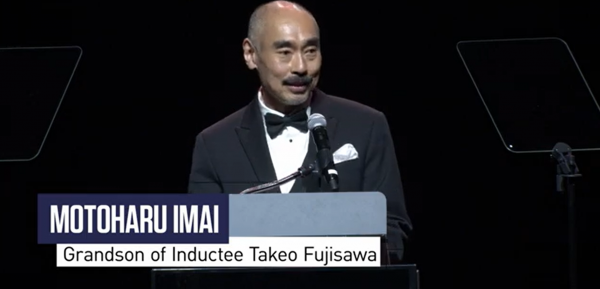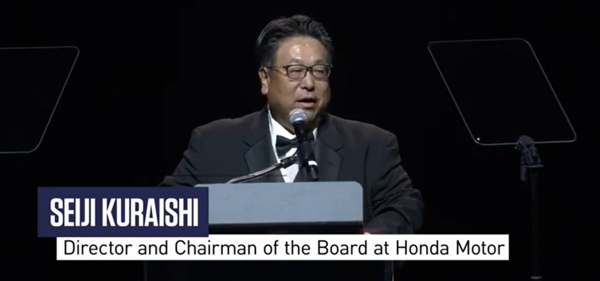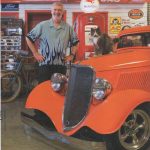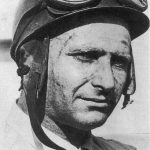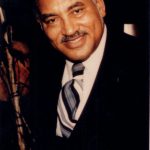Takeo Fujisawa’s path to the Honda Motor Company was not a simple one. Fujisawa was born in Koishikawa-ku, now known as now Bunkyō-ku, in Tokyo. When the Great Kanto Earthquake struck in 1923, his father’s film company was destroyed and he became too ill to continue to work. Fujisawa needed to find a way to help support his family. He initially hoped to become a teacher, but he failed the necessary exams and instead turned to copywriting. During this early career, he had a reputation for being quiet and shy; this would come as a surprise to those that would meet him later in his life. A rapidly militarizing Japan conscripted Fujisawa for mandatory two-year military service in 1930. He resumed his copywriting career upon his return.
Fujisawa’s first introduction to an industrial company was in 1934 when he started working at Mitsuwa Shokai as a traveling salesman, visiting small factories to advertise the company’s steel products. It was in this role that Fujisawa’s personality began to shine. Once a poor public speaker, he became personable and well-liked, allowing him to establish relationships with his customers. He became the company’s top salesman and, after nine years, took over as the company’s manager when the previous one was called away to military service.
After years of working for others, Fujisawa started to consider entrepreneurship in 1939. He established Nippon Kiko Kenkyujo, a tool manufacturing company, while maintaining his job at Mitsuwa Shokai. His new company began manufacturing after three years, and he was able to leave his position at Mitsuwa Shokai and commit to his new endeavor fulltime.
At this point in Fujisawa’s career, his fate became tangled with Honda’s. Nakajima Aircraft, one of Fujisawa’s clients, sent a representative, Hiroshi Takeshima, to inspect tools at Fujisawa’s factory. Takeshima was acquainted with Soichiro Honda, who provided supplies for Nakajima Aircraft. For several years, this professional connection was the extent of their relationship.
After World War II, Japan needed new building materials, and Fujisawa sought to meet that need. In 1945, he established a building materials business in Fukushima. He encountered Takeshima again during a business trip to Tokyo in 1948, and the fateful encounter inspired Fujisawa to sell his companies and return to his beloved Tokyo. A year after his return, Takeshima suggested that Fujisawa meet with Soichiro Honda.
Honda Motor Company was established in 1948 by Honda, and in 1949 he welcomed Fujisawa’s arrival to the fledgling company. Fujisawa quickly developed a close working relationship with Honda; Fujisawa respected Honda’s strengths as an engineer and Honda admired Fujisawa’s experience as a money manager. The first year of Honda’s business proved difficult due to an economic recession. Nevertheless, Fujisawa decided to make his best effort at his new job. In June of 1950, the Korean War spurred an economic upturn, and the crisis ended for Honda as the need for auxiliary engines increased. At that time, Fujisawa served as a plant manager, though he was known for keeping busy moving around the plant floor and helping with production. Even when he sprained his ankle and had to walk with a cane, he stayed active on the plant floor. His commitment to the job did not go unnoticed. One day, Honda asked for a meeting. Impressed with Fujisawa’s work ethic, he offered to sell his young employee some of the company shares. With the financial support of his father, Fujisawa accepted the president’s offer – a move he later thanked himself for, given the company’s future global success.
Fujisawa had learned early in his career the importance of building trust-based relationships with clients, which helped him become well-liked and trusted by manufacturers. He brought this experience to Honda, where he was known for his level-headed leadership, honesty with clients and fellow staff, and maintaining a respectful attitude above all else. Combined with his business-minded outlook and marketing expertise, he bolstered Honda’s financial success and expansion by helping to significantly grow their salesforce, maintaining the company ethos and good working conditions, and ensuring profitability. Together they were able to turn the company into an international success.
